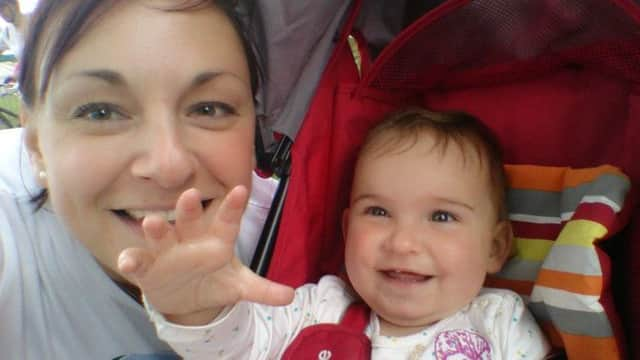Thousands of mothers left to suffer with depression


The findings, published in a study commissioned by the Maternal Mental Health Alliance (MMHA), found the long-term effects of poor mental healthcare for new mothers cost the UK more than £8 billion a year.
One in five women develops some type of mental health issue during their pregnancy or in the first 12 months following the birth. These conditions can include depression, anxiety and psychosis, such as bipolar disorder or schizophrenia.
Advertisement
Hide AdAdvertisement
Hide AdCurrently, Scotland has two six-bed units in hospitals in Glasgow and Livingston, for mothers from throughout Scotland with the most severe perinatal (pre-birth and the year after delivery) mental health conditions.
But an audit of perinatal mental health services carried out by MMHA along with the Royal College of Psychiatrists found no specialist service in 40 per cent of areas in Scotland and England, rising to 70 per cent in Wales and 80 per cent in Northern Ireland.
The report said the lack of consistent care to treat women was “of major importance” because of the damage to mothers’ wellbeing and “because they have been shown to compromise the healthy emotional, cognitive and even physical development of the child”.
Of the £8.1bn cost, a fifth was borne by the public sector including the NHS and social services. The remainder was estimated as a wider cost to society such as through lost earnings.
Dr Roch Cantwell, perinatal psychiatrist at Leverndale hospital in Glasgow, said: “The majority of women don’t need to come into hospital and the 12 beds available is more or less sufficient provision for Scotland. But this service needs to be provided in parallel with community services which play a very important role in terms of prevention, one-to-one counselling and treatment. The area we’re lagging behind is in a roll-out of these community services.
“While some areas have good community provision, it is still not the case that everyone has equal access to services. Some people may not regard it as a priority and not recognise it as a need, especially for early diagnosis.”
The report said there were gaps in provision across the country but that £337 million a year would bring services up to the recommended levels.
Advertisement
Hide AdAdvertisement
Hide AdDr Alain Gregoire, chair of the MMHA, which this week is launching the Everyone’s Business campaign to highlight the issues, called the £8.1bn total a “shocking statistic” and said it should prompt urgent action from politicians and healthcare commissioners.
A Scottish Government spokesman said: “[We] expectNHS boards to provide safe, effective care and services which support and respond to the needs of the individual.
“For women at high risk of perinatal mental illness, this includes developing a detailed plan for their late pregnancy and early postnatal psychiatric management.”
CASE STUDY
‘I wanted to end my life. Counselling saved me’
SALLY Tyrell said she felt suicidal after being diagnosed with severe post-natal depression following the birth of her second child in July 2013.
Yet Ms Tyrell, from Hamilton, South Lanarkshire, said she faced a lengthy wait for NHS counselling and at one stage was sent home to listen to relaxation music. She said she owes her life to the help she received from a volunteer group in Glasgow.
“I was offered no support from the NHS other than medication. I was even referred to the ‘crisis’ team who saw me within four hours of seeing my GP, who sent me home to listen to relaxation music, and referred for anxiety management which would take six weeks to begin.
“I was told I would have to wait 21 weeks on the NHS to see a counsellor. I couldn’t wait that long so used the services of CrossReach Bluebell in Glasgow.
“My lowest point was wanting to end my life. It affected my whole family and especially my husband who felt completely helpless. I could not be left on my own, I felt like I couldn’t cope. My mum had to juggle work to come and stay with me on nights when my husband was at work, and also when he was on day shifts. Some of my close friends also came to stay with me.
“I would not be here if it was not for Bluebell support. Counselling saved my life. I can honestly say that from the bottom of my heart.”